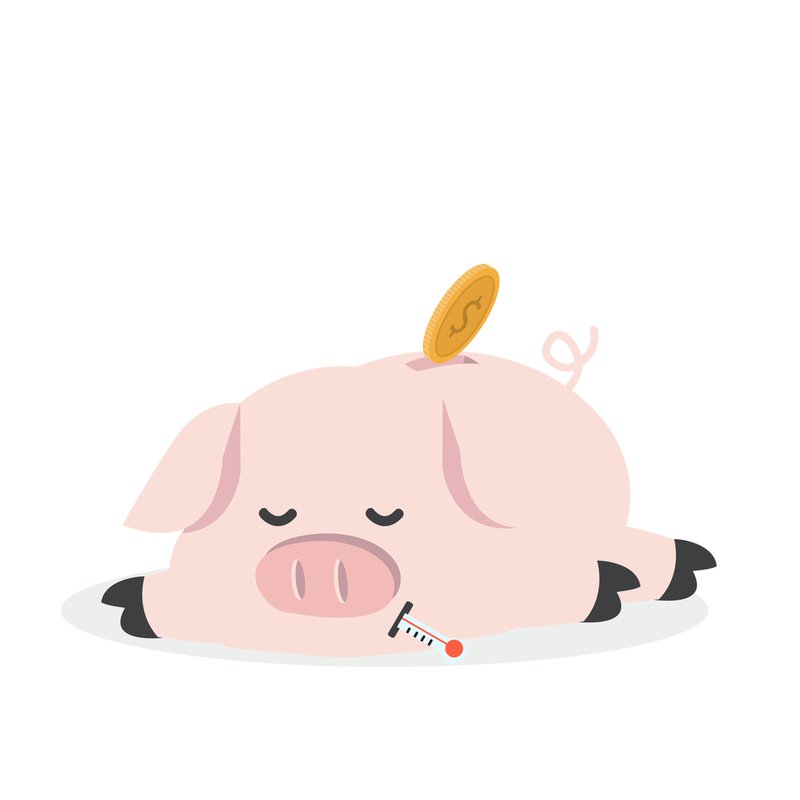
By Patrick Collinson
March 9, 2020
Savers are nursing losses approaching 10% in their pension schemes since the start of the coronavirus market panic, while holders of share Isas have lost as much as a quarter of all their money in some funds.
The stock market rout means someone who had accumulated £250,000 in their pension scheme at the start of this year will have seen it shrivel to about £225,000 on Monday.
Holders of final salary-style pensions, mostly in the public sector, lose nothing as their payouts are guaranteed. However, further falls in the market will mean these schemes will drop further into deficit, requiring employers (such as local authorities and universities ) to somehow find the cash to top them up.
One saving grace is that the vast majority of pension schemes invest less in equities than in the past, so a 5% fall in the market does not equate to a 5% fall in the total value of the fund. The typical pension fund is about 60%-65% in shares, with the rest in government and corporate bonds, and property.

The value of the government bond portion has actually gone up during the crisis. When you see stories saying government bonds have gone negative (as did a lot of UK government bonds on Monday) it is not negative for your pension. It means the value of the bond has gone up, even if the yield (the interest rate) has gone down.
But savers in pure equity investments – such as share Isas or junior Isas invested in equities – are suffering hefty losses.
Take, for example, the popular M&G Recovery fund, which is in lots of Isas. The £2bn fund has lost 21% of its value over the past year – and that is before Monday’s market losses are calculated.
The average UK equity fund is showing one-month losses of 13%, according to figures from trustnet.com. Britain’s most popular fund, the £18bn Fundsmith Equity, lost 7% of its value in February and will be down again on Monday.
The most shell-shocked funds are those invested in the oil sector. A “global energy” fund run by the London investment firm Schroders is currently showing a loss of 42% over one year – and again this is before Monday’s extraordinary fall in the oil price is factored in.
But it is worth remembering that these falls have come after some very strong rises in recent years. The average fund invested in technology shares is still showing gains of 40% over three years, while those invested in North America are up 20%.
Spare a thought for long-suffering investors in the funds run by the fallen star manager Neil Woodford. His main fund, LF Equity Income, is down 29% over the past year, with further falls this week not yet in the price.
What should investors do? Even the major fund managers are caught between saying “now is a good time to buy” and “things could still get worse”. Georgina Taylor, a fund manager at Invesco, believes the crisis will prompt action by governments, which could stabilise markets. “The worse it gets the more likely a policy intervention could occur, which could stabilise financial markets very quickly,” she says.
It is not all bad news. Drivers will at least see the price of petrol fall
However, others admit that investors and fund managers are as emotional and confused as the general public. Christopher Smart, the chief global strategist at Barings, an asset management firm, says: “Most of the time, investors can stare studiously at their screens, fiddle at length with their spreadsheets and make a reasoned judgment to buy or sell based on data, analysis and a hunch. But as the coronavirus headlines multiply, money managers must contend with much noisier voices rattling around in their heads.
“Pricing in this new reality is hardly precise but it has clearly begun and it is what professional investors are paid to do. What is so much harder, however, is to keep their own emotions in check as they stare at all these projections.”
It is not all bad news. Drivers will at least see the price of petrol fall. “Consumers will benefit as they spend less on petrol and have more to spend on other items. It will also be positive for other industries such as airlines, which has seen demand fall due to the coronavirus, but will now also see their largest cost fall, too,” says Randeep Somel of M&G Investments.


